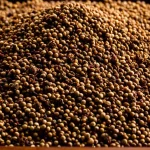Essential British Dishes You Should Try First
British cuisine offers a rich tapestry of iconic British dishes that reflect its history and regional diversity. Many traditional British food items stem from humble origins, transformed over centuries into must-try British meals. For example, the classic Sunday roast embodies cultural values, combining roast meat, vegetables, and Yorkshire pudding, symbolizing family gatherings and a shared sense of heritage.
Sampling these dishes is best done in their regions of origin. Yorkshire is famous for its puddings; Cornwall for its pasties; and coastal areas for fresh seafood. Exploring such regions allows you to taste authentic flavours and appreciate local ingredients like root vegetables, lamb, and freshly baked bread, which define these national favourites.
Also read : How can you master the art of making a perfect roast dinner?
The defining traits of iconic British dishes include simplicity, freshness, and a comforting balance of flavours. Key ingredients such as potatoes, carrots, onions, and hardy meats often feature prominently. Understanding these core elements helps deepen one’s appreciation for the rich textures and hearty qualities that make must-try British meals so enduring and beloved.
Famous Meat-Based British Specialties
Discover some of the most beloved British meat dishes that illustrate the country’s culinary heritage. The roast dinner, often featuring roast beef served with Yorkshire pudding, is a traditional highlight of Sunday lunches across Britain. This dish embodies family togetherness and seasonal produce, making it a beloved must-try British meal. Yorkshire pudding, with its crisp edges and fluffy center, perfectly complements the savory meat and rich gravy.
In parallel : What are the essential spices for traditional British cooking?
Another iconic dish, shepherd’s pie, offers comforting flavours rooted in home-cooked warmth. Made with minced lamb topped with creamy mashed potatoes, it showcases how simple ingredients create hearty, satisfying food cherished nationwide.
Meanwhile, steak and kidney pie reflects regional traditions and the pub culture integral to British dining. This rich, savory pie combines tender beef steak with kidney in a flaky pastry crust, often found on menus in local inns and traditional pubs.
Each of these dishes highlights key elements of traditional British food: locally sourced meats, careful cooking techniques, and a focus on flavour and texture that make these iconic British dishes timeless and essential to try.
Standout British Seafood and Fish Dishes
British seafood holds a special place within traditional British food due to the nation’s extensive coastline and fishing heritage. Fish and chips are perhaps the most enduring symbol of British cuisine. This dish pairs golden, crispy battered fish—usually cod or haddock—with thick-cut chips, offering a perfect blend of textures and flavours. Originating in the 19th century, fish and chips quickly became a popular meal for working-class families, and it remains a must-try British meal today.
In addition to fish and chips, British fish dishes often include smoked salmon and kippers. These smoked delicacies are staples of traditional breakfasts in many coastal regions. Kippers, in particular, are split, salted, and smoked herrings, presenting a smoky, rich flavour that complements morning meals.
To enjoy authentic British seafood, visit coastal towns such as Whitby, Cornwall, and the Scottish Highlands. Here, fresh catches are celebrated, and local markets showcase the very best. Sampling these regional specialties offers a true taste of Britain’s maritime culinary culture, highlighting the importance of freshness and simplicity in these beloved dishes.
Classic British Breakfasts and Bakes
Indulging in a full English breakfast offers a true start to any day with familiar, hearty flavours. This iconic British breakfast traditionally includes eggs, sausages, bacon, baked beans, grilled tomatoes, mushrooms, and toast or fried bread. Its origins trace back to the Victorian era, intended as a substantial morning meal for workers needing energy. Eating a full English breakfast remains a must-try British meal symbolizing comfort and tradition.
Alongside savoury breakfasts, British bakery goods play an essential role in daily life. The delicate combination of scones and clotted cream, often served during afternoon tea, exemplifies a cherished ritual. Scones with jam and clotted cream promise a sweet, buttery experience that mirrors the slower, social aspects of British food culture.
Regional bread and bakes, such as Cornish splits or Lancashire oven bottom bread, highlight local variations in traditional British food. These bakes emphasize the importance of fresh, often locally sourced ingredients, enhancing their authentic flavours. Exploring these baked goods offers insight into Britain’s rich culinary history and enduring love for simple, satisfying meals.
Traditional British Pies and Savoury Pastries
British pies and savoury pastries are emblematic must-try British meals that combine history, flavour, and practicality. The Cornish pasty stands out as a premier example of traditional British food, with its protected status ensuring authentic preparation. Originally a portable miners’ meal, its flaky crust encloses beef, potatoes, swede, and onions, making it a robust and convenient dish deeply tied to Cornwall’s heritage.
Beyond the Cornish pasty, classic British pies like pork pies and sausage rolls offer a window into market snacks and regional tastes. Pork pies, rich in seasoned pork encased in a hot water crust pastry, are particularly popular in the Midlands and often featured at picnics and gatherings. Meanwhile, sausage rolls, flaky pastries filled with spiced sausage meat, exemplify casual British eating, especially found at bakeries and pubs nationwide.
These savoury British pastries highlight a tradition of hearty, portable food, often enjoyed hot or cold. Their enduring appeal lies in the balance of crisp pastry and well-seasoned fillings, making them staples in both everyday meals and festive occasions across Britain.






